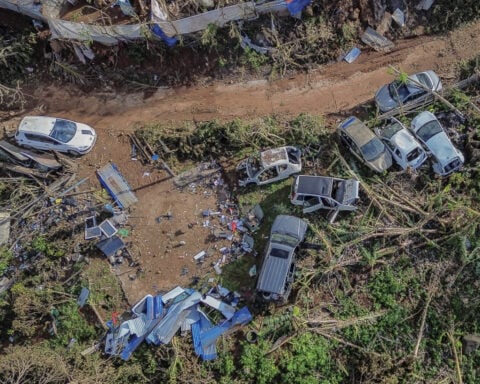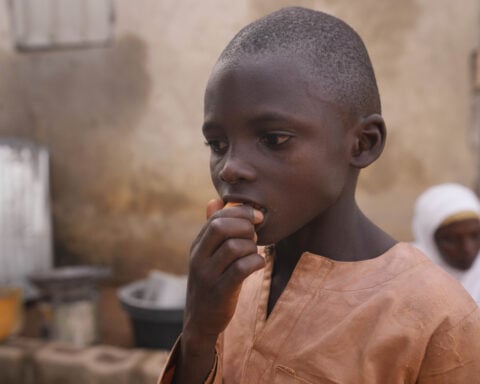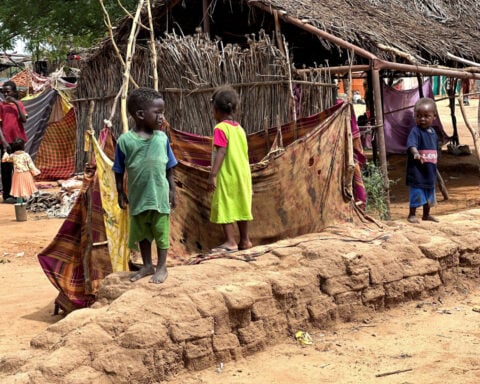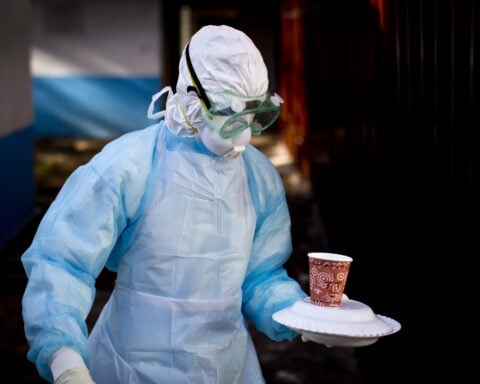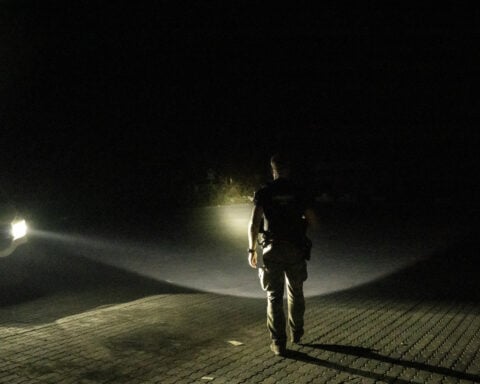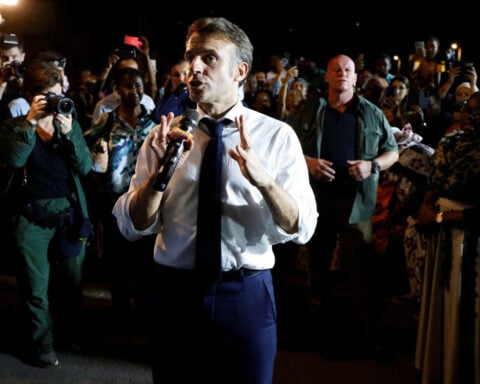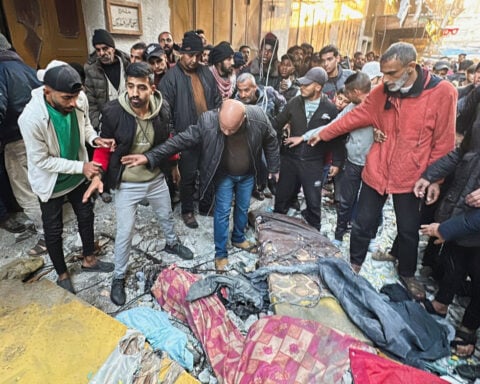By Khalid Abdelaziz
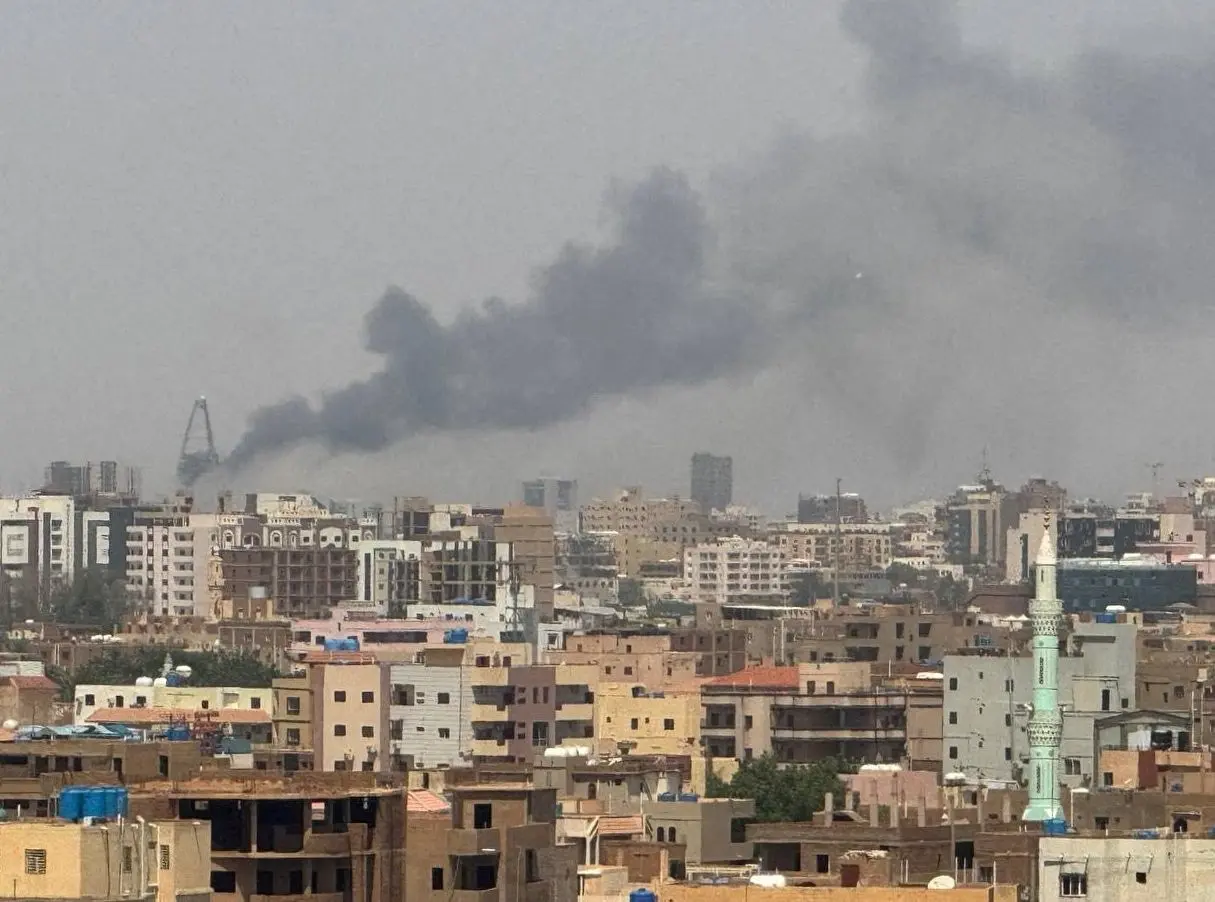
DUBAI (Reuters) -Sudan's army launched artillery and airstrikes in Sudan's capital on Thursday in its biggest operation to regain ground there since early in its 17-month war with the Rapid Support Forces (RSF), witnesses and military sources said.
The push by the army, which lost control of most of the capital at the start of the conflict, came ahead of an address by its commander, General Abdel Fattah al-Burhan, at the United Nations General Assembly in New York.
Burhan said any peace efforts depended on the RSF laying down arms. He said unnamed countries were backing the RSF with men, money and weapons, but said the army was "proceeding to defeat and dislodge these aggressors, no matter how much assistance and support they find".
In the capital, witnesses reported heavy bombardments and clashes as army troops tried to cross bridges across the Nile connecting the three adjoining cities that make up the greater capital: Khartoum, Omdurman and Bahri.
"The army is carrying out heavy artillery strikes and airstrikes on Halfaya and Shambat," Ahmed Abdalla, a 48-year-old resident, told Reuters by phone, referring to areas of Bahri close to the river. "The sounds of explosions are very loud."
Video footage showed black smoke rising above the capital and the booms of the battle could be heard in the background.
Army sources said their forces had crossed bridges in Khartoum and Bahri. The RSF told Reuters it had thwarted the army's attempt to cross two bridges to Khartoum. Reuters could not independently confirm the accounts.
Though the army retook some ground in Omdurman early this year, it depends mostly on artillery and airstrikes and has been unable to dislodge nimble RSF ground forces embedded in other parts of the capital.
DARFUR FEARS
The RSF has also continued to make advances in other parts of Sudan in recent months in a conflict that has displaced more than 10 million people, driven parts of the country to extreme hunger or famine, and drawn in foreign powers that have supplied both sides with material support.
Diplomatic efforts led by the United States have faltered, with the army refusing to attend talks last month in Switzerland.
RSF leader Mohamed Hamdan Dagalo, in a recorded speech addressed to the U.N. General Assembly and released just after Burhan spoke, repeated previous pledges that his force was open to a nationwide ceasefire that would allow delivery of aid.
On the ground however the RSF has continued its own offensives this month, intensifying its siege of al-Fashir, capital of North Darfur state in the west of Sudan.
Al-Fashir is the last holdout of the army and its former rebel allies across the wider Darfur region, where the U.N. and rights groups say the RSF and allies have led ethnically targeted attacks and the humanitarian situation is particularly critical. The RSF has denied being behind the violence.
The U.N. human rights office said on Thursday it had documented summary executions, sexual and gender-based violence, and abductions of women and young men in al-Fashir, in addition to rising civilian casualties.
"From bitter past experience, if al-Fashir falls, there is a high risk of ethnically targeted violations and abuses, including summary executions and sexual violence, by the RSF and allied militia," U.N. Human Rights Chief Volker Turk said.
The U.N. Security Council and secretary-general have also demanded an end to the siege of al-Fashir, home to more than 1.8 million residents and displaced people.
The war began when tensions between the RSF and the army, who had been jostling for position ahead of an internationally backed transition to civilian rule, erupted into open conflict.
The army and the RSF had previously shared power after staging a coup in 2021, two years after veteran autocrat Omar al-Bashir was toppled in a popular uprising.
(Reporting by Khalid Abdelaziz; Additional reporting by Emma Farge; Writing by Aidan Lewis; Editing by Andrew Heavens)

 How to save a fentanyl victim: Key facts about naloxone
How to save a fentanyl victim: Key facts about naloxone
 Eight convicted in France over murder of teacher who showed Prophet caricature
Eight convicted in France over murder of teacher who showed Prophet caricature
 Death toll in German Christmas market car-ramming rises to five, more than 200 injured
Death toll in German Christmas market car-ramming rises to five, more than 200 injured
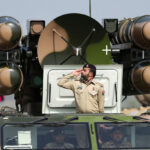 Pakistan dismisses US official's warning over missile programme as unfounded
Pakistan dismisses US official's warning over missile programme as unfounded
 Weightlifting Taiwan granny, 90, garners cheers, health benefits at gym
Weightlifting Taiwan granny, 90, garners cheers, health benefits at gym
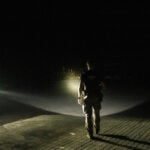 France's Mayotte struggles to recover as cyclone overwhelms hospitals
France's Mayotte struggles to recover as cyclone overwhelms hospitals
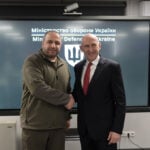 Russia's UK embassy denounces G7 loans to Ukraine as 'fraudulent scheme'
Russia's UK embassy denounces G7 loans to Ukraine as 'fraudulent scheme'
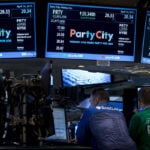 Retailer Party City files for bankruptcy, will wind down 700 stores
Retailer Party City files for bankruptcy, will wind down 700 stores
 Soccer's top players have had enough, as FIFA's new super-sized tournament sparks a revolt
Soccer's top players have had enough, as FIFA's new super-sized tournament sparks a revolt
 Lindsey Vonn finishes 14th in a super-G to mark her return to World Cup skiing at age 40
Lindsey Vonn finishes 14th in a super-G to mark her return to World Cup skiing at age 40
